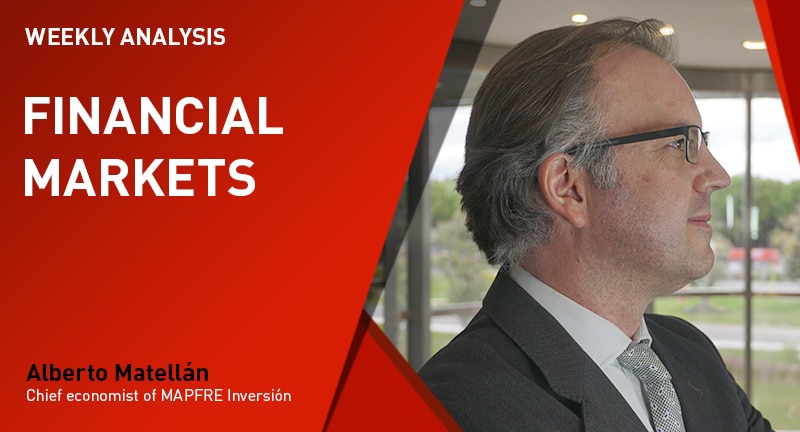“Europe's debt market is more involved than its American counterpart”

Redacción Mapfre
Despite healthy PMI figures, the markets remain cautious about the future evolution of the pandemic. Talking to Radio Intereconomía, Alberto Matellán, Chief Economist at MAPFRE Inversión, added that investors are "holding off" for further pronouncements from the central banks. However, in his view, and in that of others at present, "inflation in the eurozone should not present a problem."
Turning to the Fed, Matellán claims that, above the noise being made about possible monetary measures, a "healthy" debate is already opening up regarding the direction the central bank will take next with its policies. Nonetheless, the MAPFRE economist recognized that "this does not mean to say that any changes will be immediate." With the Fed's balance sheet showing a lower GDP (37 percent) than its European counterpart (63 percent), Matellán highlighted the money multiplier as a differentiator: "The multiplier is larger in the US, so in fact the final amount is equivalent in both regions, though this variable does not really feature on the ECB's list of objectives."

Staying in the US, Matellán estimated that the Nasdaq's historical highs are sustainable thanks to their relationship with profits: "Each time we buy shares, we are buying the expected future profits, and these profits are currently expected to grow considerably." In this respect, he added that the future may look different if this growth is not kept up.
As regards the debt market, Matellán explained that this is moving slowly and gradually in line with the economy. However, he explained, US bonds have more room for movement as "the European debt market is more involved than its American counterpart." In relation to the very high oil prices at present, he pointed to market expectations as the main factor responsible for the rises this year: "As long as [expectations] continue to grow, the price per barrel will remain high."
Lastly, after underlining the importance of reading widely as part of investment activity, he stressed that, on this occasion, technical knowledge is not the key. "Investors focus more on understanding what surrounds them than on mathematical calculations."



